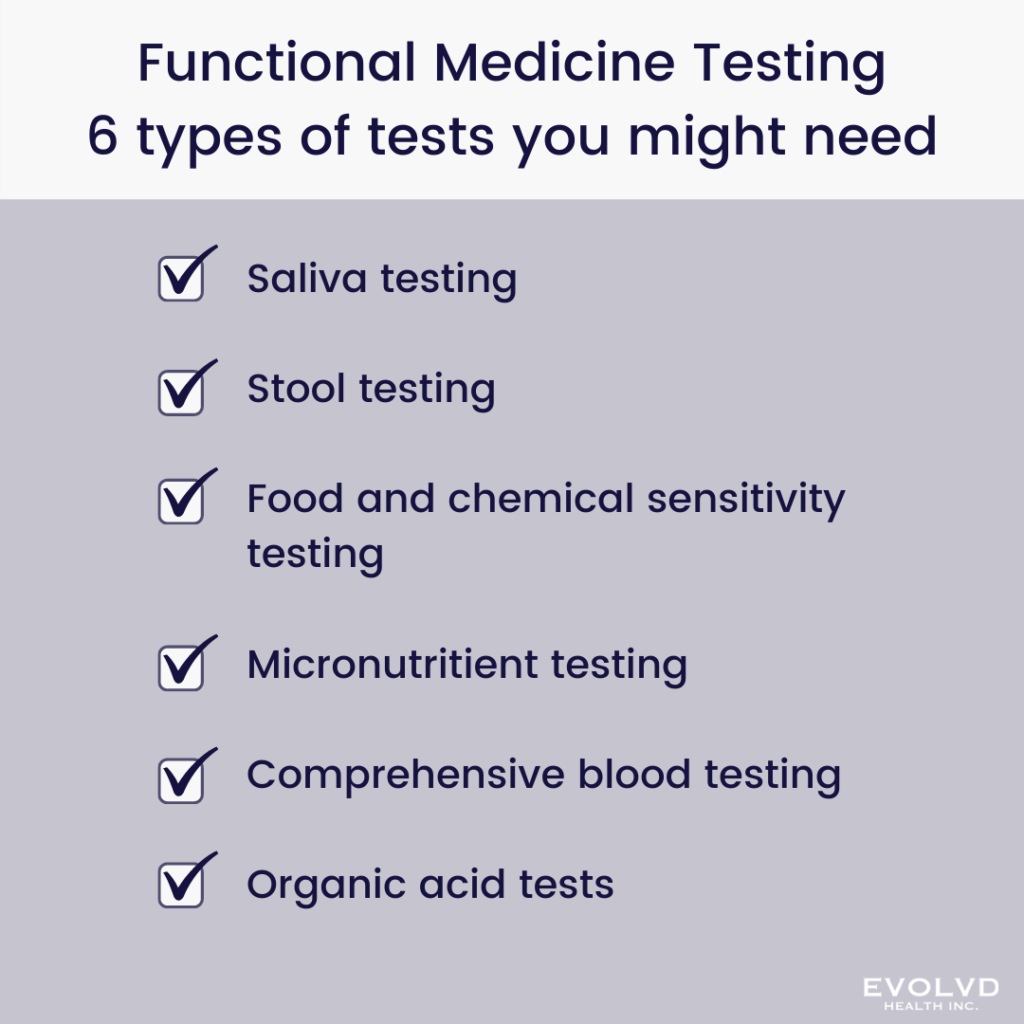Functional Medicine Testing: 6 Types of Tests You Need

Do you feel like you’re doing everything right, but you’re still struggling to lose weight? Are you tired all the time? Suffering from low libido? There are numerous reasons why you could be experiencing these symptoms, which is why it’s important to get tested and uncover the root of the issue.
The problem is standard lab tests examine the basics, but there is much more information that your body can tell you. As a result, it’s essential to request tests that take a closer look.
Here are the six functional medicine tests your doctor should be running:
1. Saliva testing
This type of test can measure an individual’s hormone levels, including cortisol (the stress hormone), estrogen, progesterone, and androgen.
In the blood, there are two types of hormones: bound and unbound. Most hormones are bound by proteins, unable to be used by tissues. Approximately 5 percent of hormones are unbound and do not bind to protein, available to be used by body tissue.
Unlike blood tests, which can only examine bound hormones, saliva tests examine the unbound hormones that are contributing to hormonal imbalance.

2. Stool testing
To diagnose conditions affecting the digestive tract, stool testing is essential. These tests look at the gut microbiome, inflammation levels, amount of good versus bad bacteria and more. A person’s gut health provides valuable insight into their overall well-being.
Stool testing allows functional medicine practitioners to understand the root cause of the problem. For example, it will show if you’re infected with a specific virus or bacteria. The results will give specific information your doctor can use to help treat it.
3. Food and chemical sensitivity testing
Food and chemical sensitivity testing examines your body’s immune response to foods, chemicals and other substances.
The main role of the immune system is to protect the body from toxins and fight off foreign invaders. However, certain medications, environmental stressors and lifestyle habits can negatively impact immune system function.
This can manifest in the form of different symptoms such as fatigue, digestive problems, skin irritations, depression and more. These types of tests can identify the intolerance on a cellular level.
4. Micronutrient testing
To find out the levels of vitamins, minerals, antioxidants and amino acids in your body, micronutrient testing can help. Based on the results, doctors can uncover where there is a deficiency or excess amount of micronutrients.
Nearly every physiological function in your body requires micronutrients. When you don’t get enough of these essential nutrients, it can lead to chronic health conditions down the line; these include osteoporosis, type 2 diabetes, heart disease, and in severe cases, cancer.
5. Comprehensive functional blood testing
These blood tests measure all aspects of your bodily functions: kidney, thyroid, liver, blood sugar, electrolytes and more. Comprehensive functional blood tests can be customized to look for specific markers that are related to your health concerns.
The major benefit of this test is that it offers insight into potential problem areas. This gives the individual the opportunity to take preventative measures before the issue escalates.
6. Organic Acids Test (OAT)
This baseline test provides an overview of a person’s metabolic health. The OAT test measures organic acid levels in urine, which helps a doctor evaluate an individual’s intestinal yeast and bacteria levels.
It also includes specific markers for oxalates, which are linked to many chronic health conditions.
All of these functional medicine tests are vital to understanding your health on a deep level. The body is so complex, and testing can give you the information you need to optimize your mental and physical wellness.
To create an individualized health plan, functional medicine doctors take several factors into account. Along with these test results, they look at your medical history, current lifestyle, and unique genetic makeup. This combined data provides doctors with a detailed picture of your overall health.

